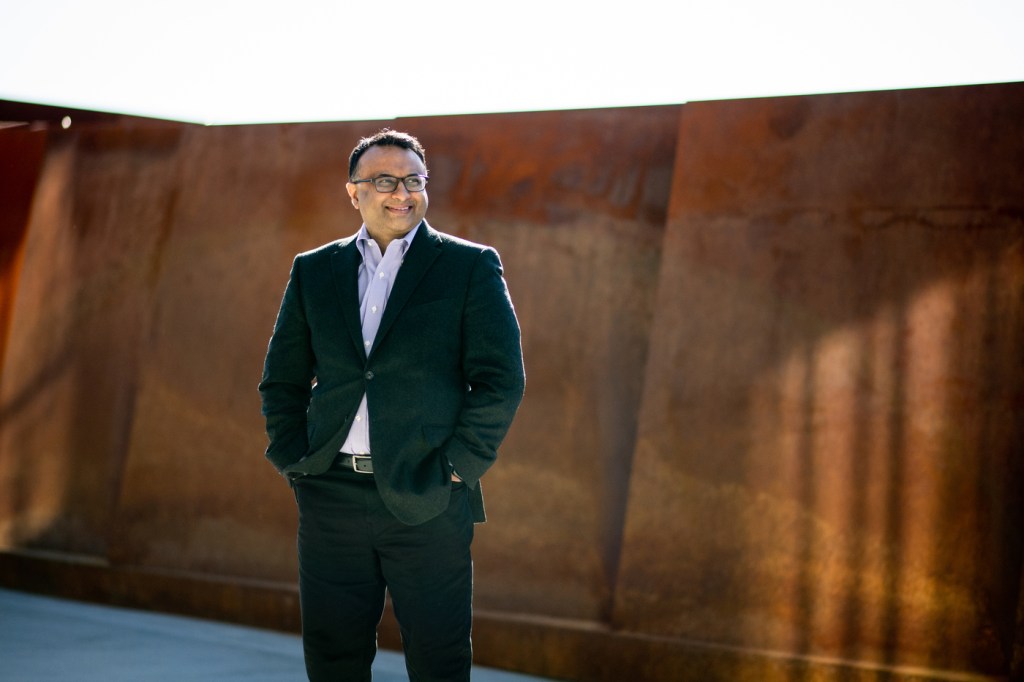Northeastern professor Neil Maniar helps
lead creation of new national Public
Health Academy

The COVID-19 pandemic demonstrated the importance of public health in guiding best practices for policymakers and protecting the health of communities.
Now, Northeastern University professor Neil Maniar is working to raise the profile of public health on a national level by helping establish a new Public Health Academy under the auspices of the National Academies of Practice.
The Public Health Academy, is the 17th academy to be established under the nonprofit NAP, which has been around since 1981.
The Public Health Academy’s first cohort of professional members and fellows is set to be announced in December, says Maniar, director of Northeastern’s master of public health program.
Editor’s Picks
The new academy aims to advocate for better healthcare practices, foster interdisciplinary collaboration and “to spark research, scholarship, and innovation to ensure that individuals and communities can be as healthy as possible,” he says.
“It’s an opportunity to be part of a national organization that is advocating (for issues) at a national level, by working in concert with a broad spectrum of health professions,” Maniar says.
He says the academies hold advocacy days on Capitol Hill, publish white papers, serve as policy advocates, collaborate on identifying best practices, recognize distinguished service and provide professional development for members.
Maniar says he was asked to help convene the working group that developed the proposal for the Public Health Academy after giving a presentation to the NAP on an innovative model of interprofessional collaboration he co-developed here in Massachusetts during the early days of the COVID pandemic.
This model, the Academic Public Health Corps, deployed over 1,000 public health students and alumni to local health departments throughout the Commonwealth.
“There has been a longstanding desire to develop this academy,,” Maniar says.
“I am deeply grateful for the expertise and hard work that my colleagues from around the country provided to make this academy a reality,” with the approval by NAP’s governing council in August, he says.
“There are so many different public health issues on the horizon, ranging from pandemic preparedness to mental health, to chronic disease management and caring for aging populations, just to name a few,” Maniar says.
“This new Public Health Academy will enable academy members to work with leaders in other health professions to create comprehensive solutions to these complex problems,” he says.
Existing academies include academies of nursing, pharmacy, medicine, psychology, speech-language pathology, and nutrition and dietetics, among others.
With the creation of the Public Health Academy, “we now have one of the missing pieces,” Maniar says.
He says the field of public health is expanding and is distinguished by the diversity of practices and practitioners, who can include educators, researchers, community health workers, social workers, physicians and nurses, among others.
Bouvé College of Health Sciences, with its diverse schools and programs including nursing, physical therapy, public health, pharmacy and speech and language pathology sets a great example of cooperation and collaboration, Maniar says.
“The academy is really about creating this big umbrella to bring people from across all these different disciplines together,” he says.
“We have a unique opportunity to forge innovative collaborations and quickly become an impactful addition to the NAP.”
“This will provide an exciting new medium to collaborate with individuals from around the country, representing a diverse array of disciplines and health professions, to address a given issue,” Maniar says.










